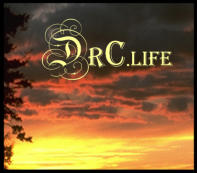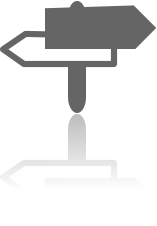
Tuesday 06 | 06| 2017
Who Do You Think You Are? - Part 2
In the previous blog, part one, the answer was genealogical, biological, and included the search for that story we tell ourselves about who we want to be – our true self. But there is a darker side to the question when it is presented as a derogatory declarative, “Who [the heck] Do You Think You Are?” It is laden with images of oppression, abuse, neglect, and a waterfall of human suffering made from the tears of those treated as objects, as “the other”. You, as the other, are not known or understood, but instead placed in a category of objects – the student, the woman, the typical male. If the person perceives that you fall outside the categorical box then you will run into “Who the heck do you think you are?” When I started these blogs I made it a goal not too get to melodramatic or self-righteous. But this topic pushes all the buttons. The objectification of others is the opposite of compassion and the root of human suffering. When I see it happening I feel like stomping around the room and screaming at the top of my voice with fingers waving, “don’t you see what’s going on here?” It’s probably happened to everyone. At some point in your life someone has said to you, “you just can’t do that”. They’ve said you’re too small, your too big, too stupid, or too smart. They’ve said, but you’re a woman, but you’re a guy, but you’re black, but you’re Jewish, etc. At some point in our lives we probably have all run into someone who is said to us, “who the heck do you think you are?” As I was discussing this blog with someone she recounted a story of when she was in kindergarten. Her parents raised her on books as opposed to the video bombardment of our current culture. Her reading ability was advanced for her age so she was “outside the box” among her kindergarten peers. Her favorite book at the time was a book called “The Secret Garden”. This is an advanced book for typical kindergarten students and the teacher said “I’m sorry you can’t do that for a book report. It’s too hard for you.” The woman who recounted this to me was in her 50s and yet this short event had profound meaning for her. Being told she couldn’t do something which she knew she was fully capable of doing was very upsetting. It’s the combination of objectification and oppression that twists the knife leaving a scar lasting from kindergarten into late middle-age. We all have these scars, and they are deeper when inflicted by parents. I’ve seen many lives torn apart by wounds not scarred over but left festering and thus infecting the person’s life - repeatedly over their entire life. I’ve seen people go to great lengths to escape from these wounds- -drug abuse, self-injurious behavior, and even using electro-convulsive therapy. And I fear these wounds are only becoming more frequent as bullies abuse use their Internet anonymity to slash away with no thought to the effects on others. These are buttons pushed for me but there’s a lot of people trying to figure out how to live with the painful noise left behind from “who the heck do you think you are?”. The insult accompanying “who the heck do you think you are?” happens because there is significant dissonance caused by the mismatch between what we believe about ourselves and what others are saying. This happened to me so many times in my life that I needed to keep a journal documenting all the occurrences. I believed, and still do, that God granted me special gifts that I was to use for a purpose. Others did not agree. The journal was a friend that I leaned on, a compassionate ear. In some way these blogs are a continuation. Support also came from a few mentors who saw that “something special” within me that I held to despite the voices of family and society. To this day I am extremely grateful to them. I am also grateful for a soul-mate who has been witness to not only the “who the heck do you think you are” voices, but also witness to the amazing events that often triggered such insults. We are lifted up and carried by many even though it may seem like, at times, we are alone in the dark hearing only those voices saying, “who the heck do you think you are?” We carry within us a sense of our true selves. A purposeful life is about discovering this true self and then having faith that such discovery is linked to the betterment of family and society, combined with the courage and determination to act on such faith. .. .


New format






Seeking the Soul of Life
























